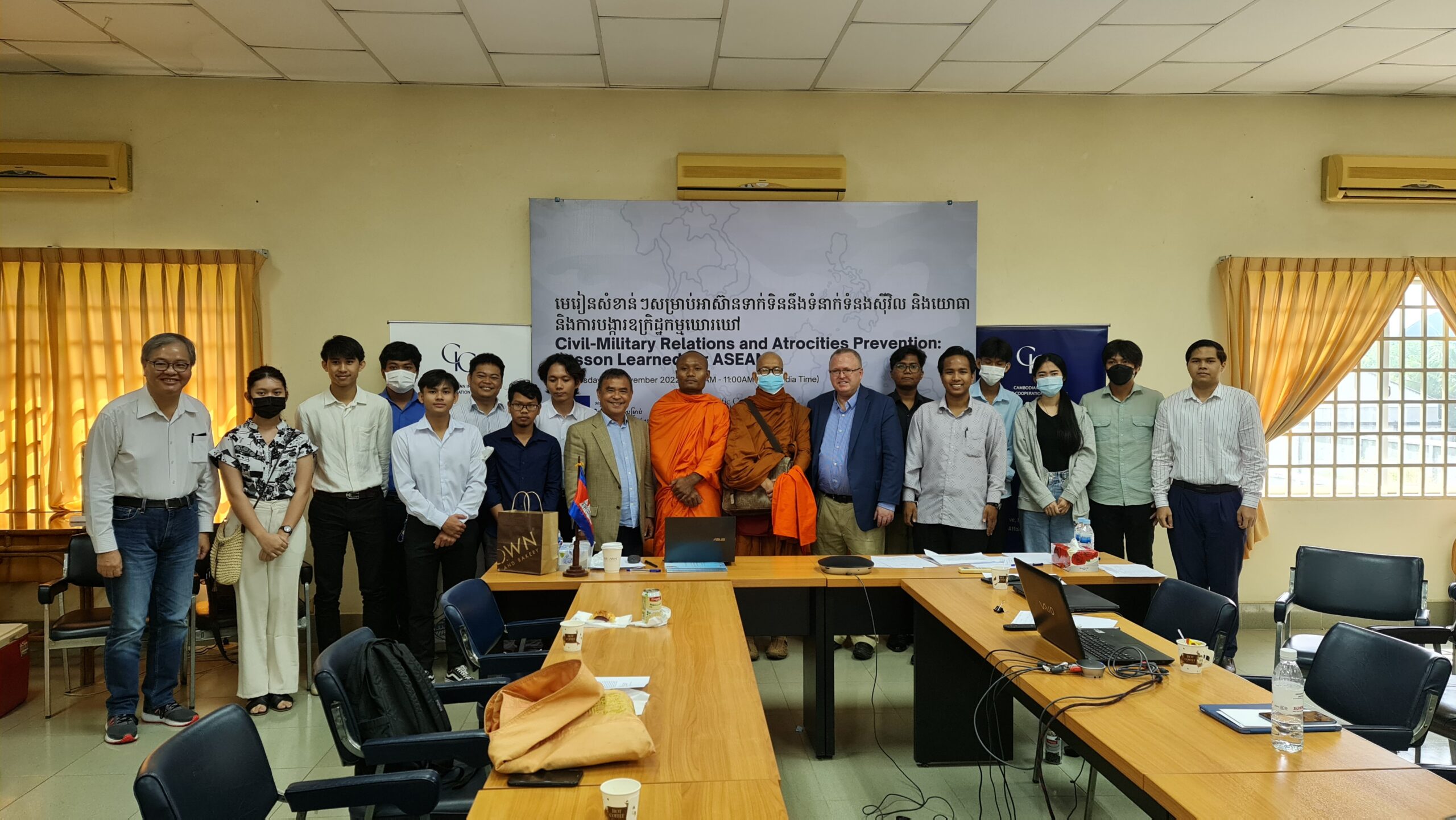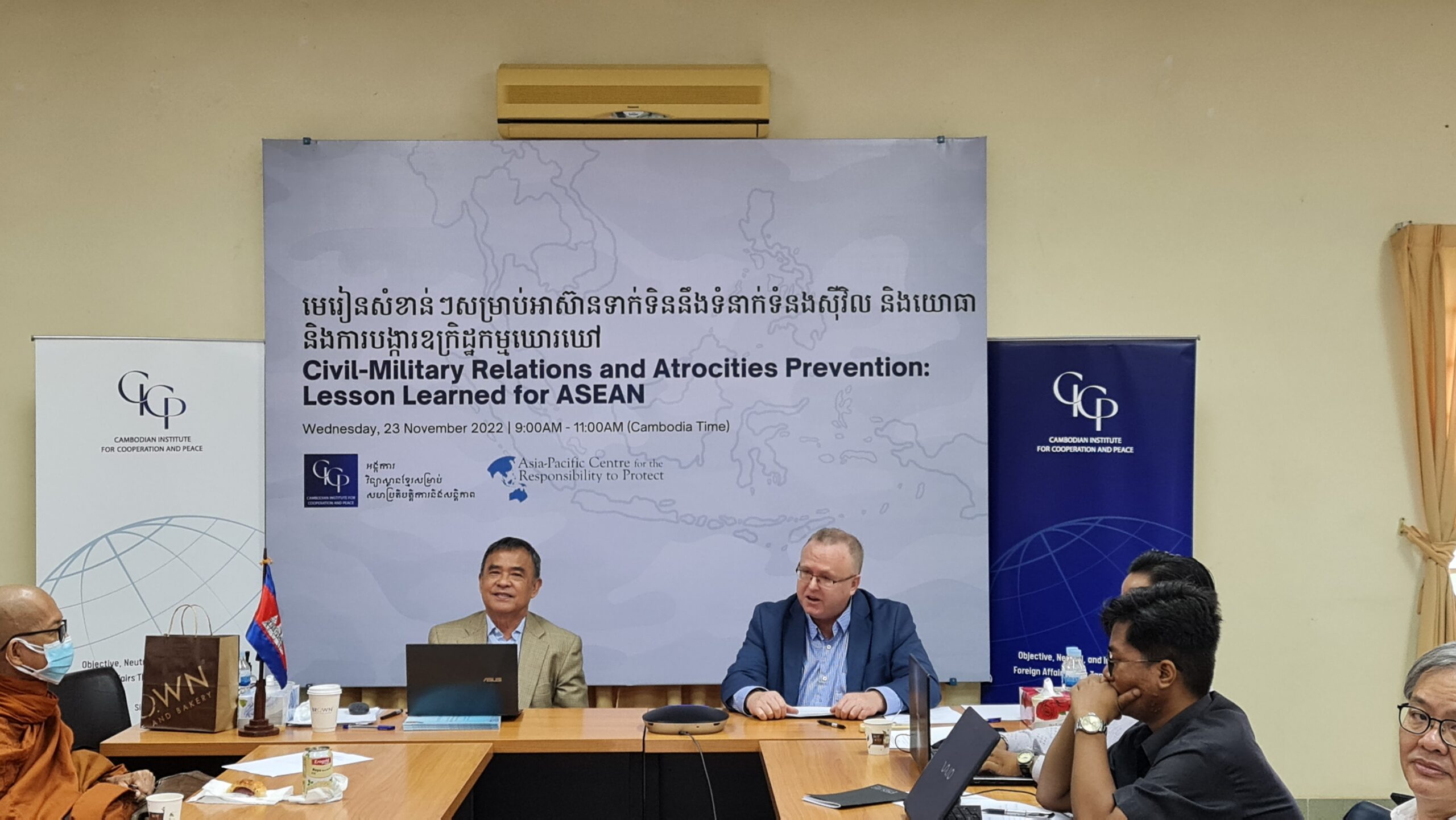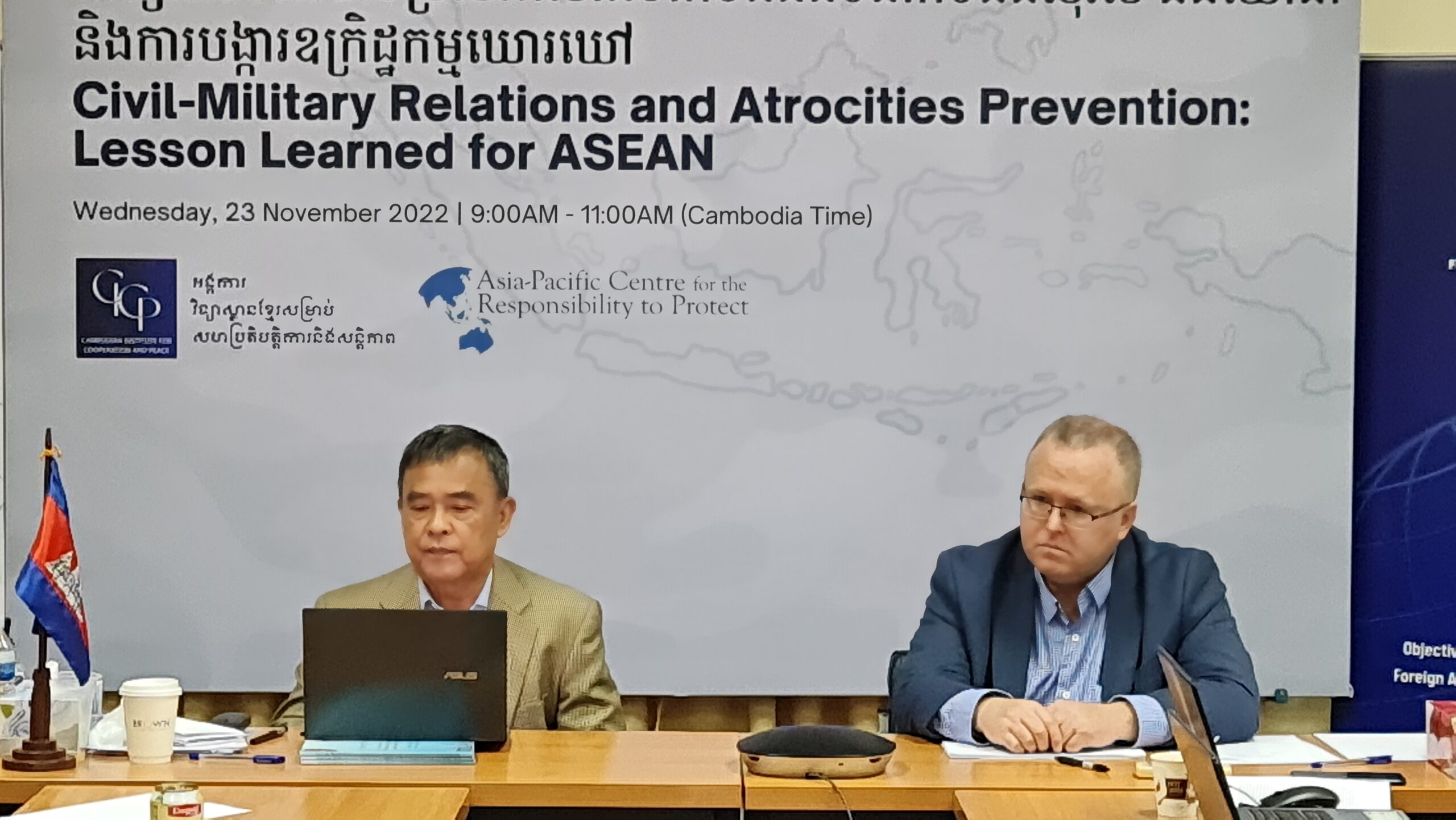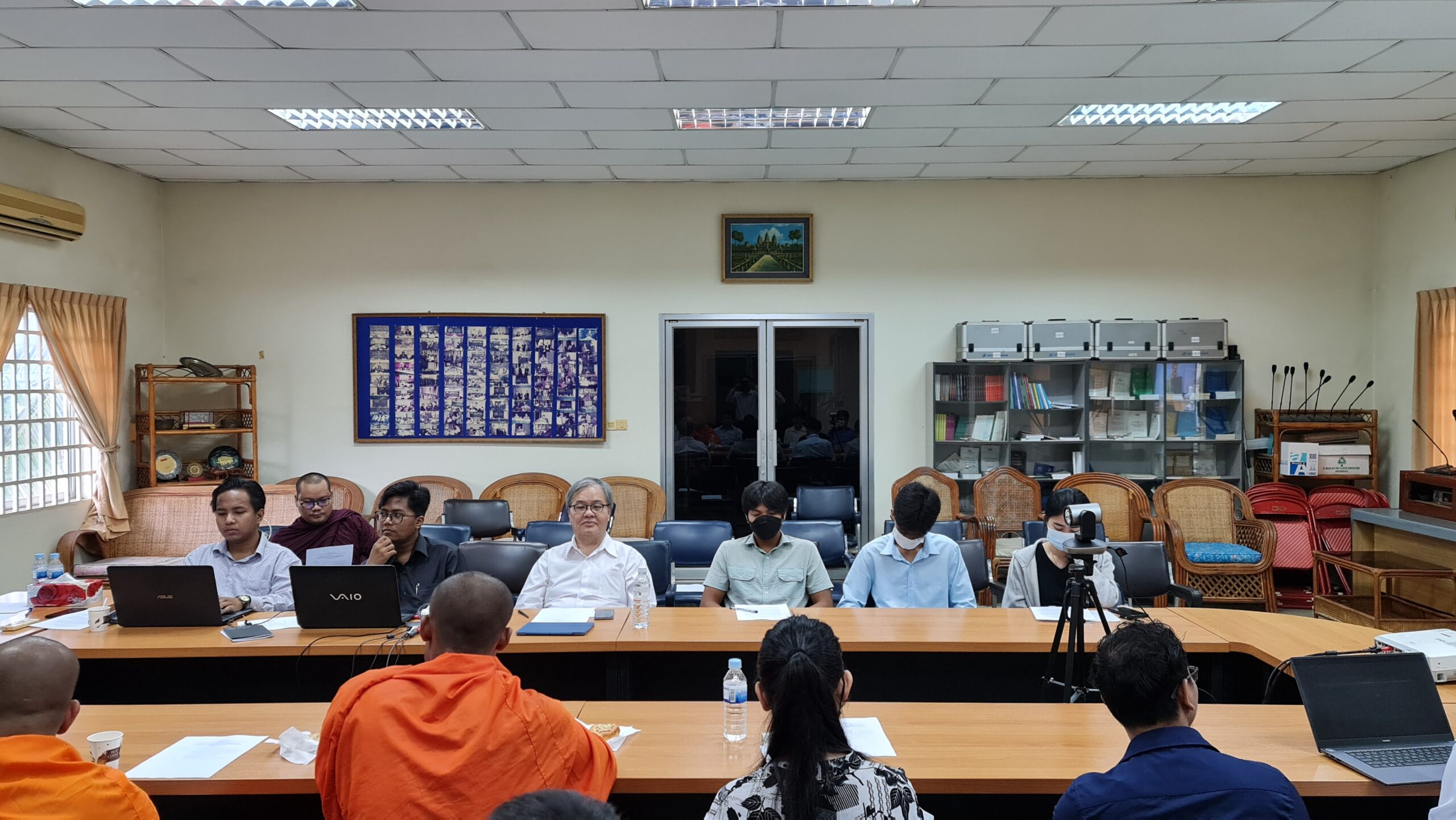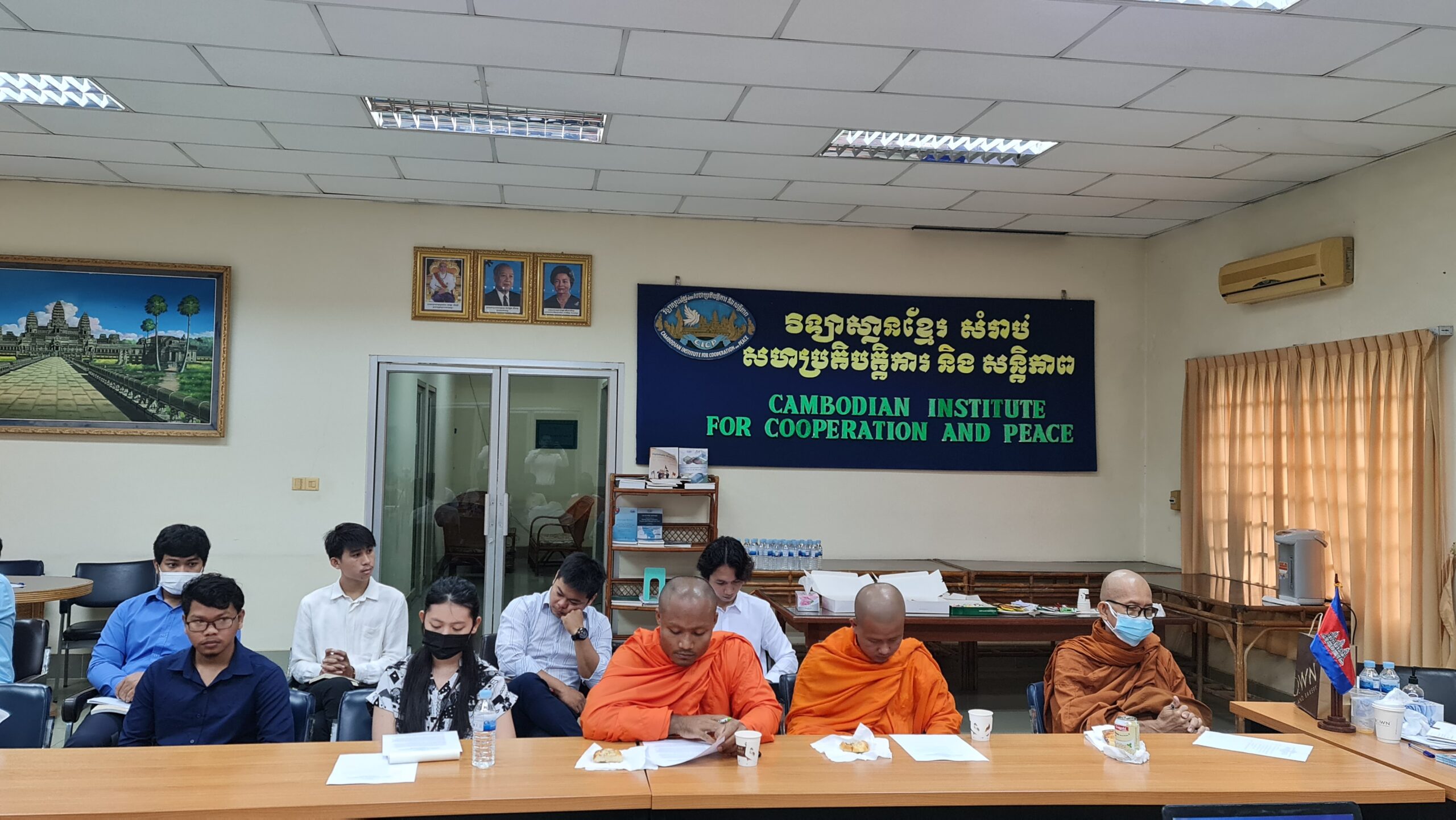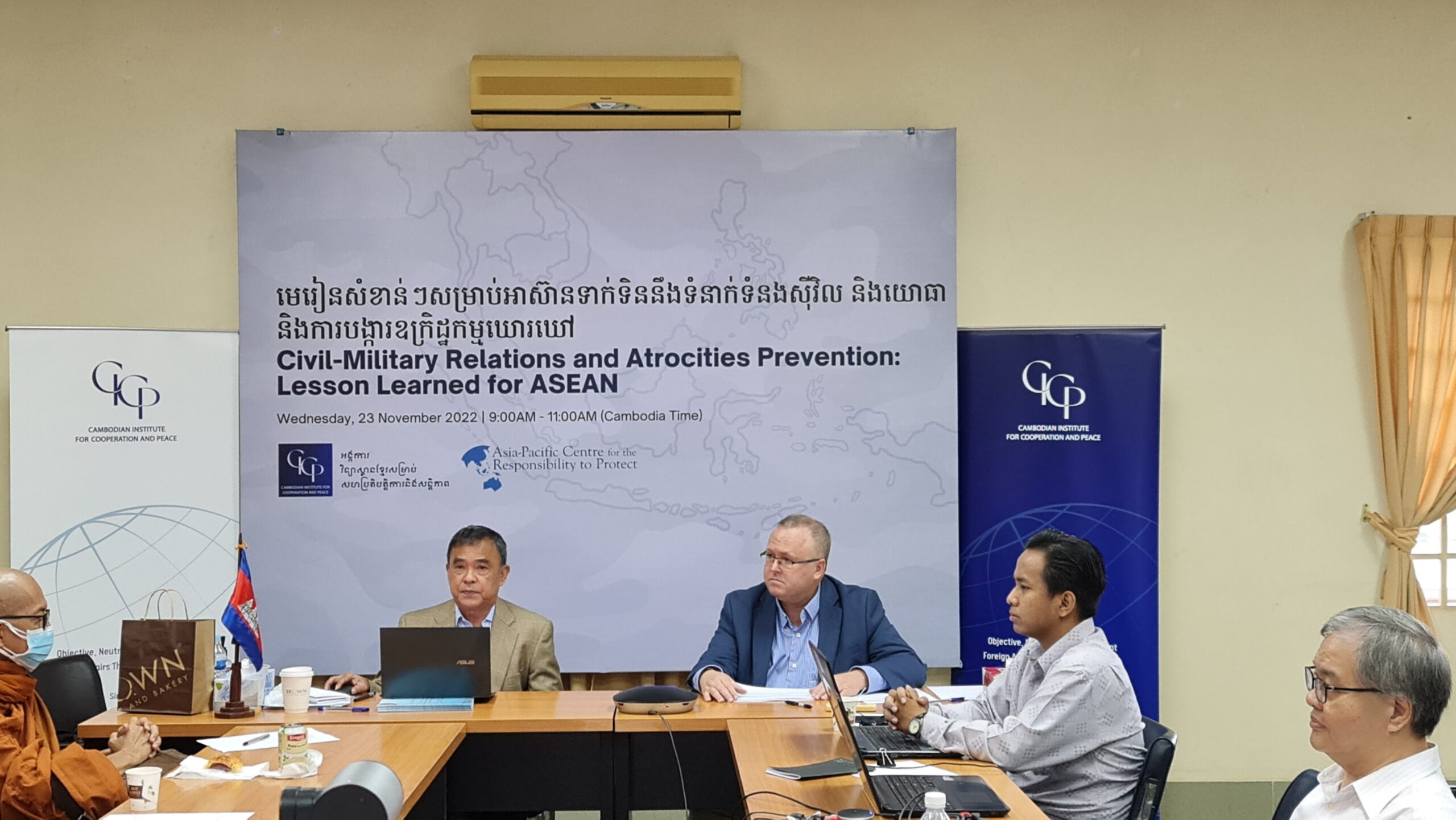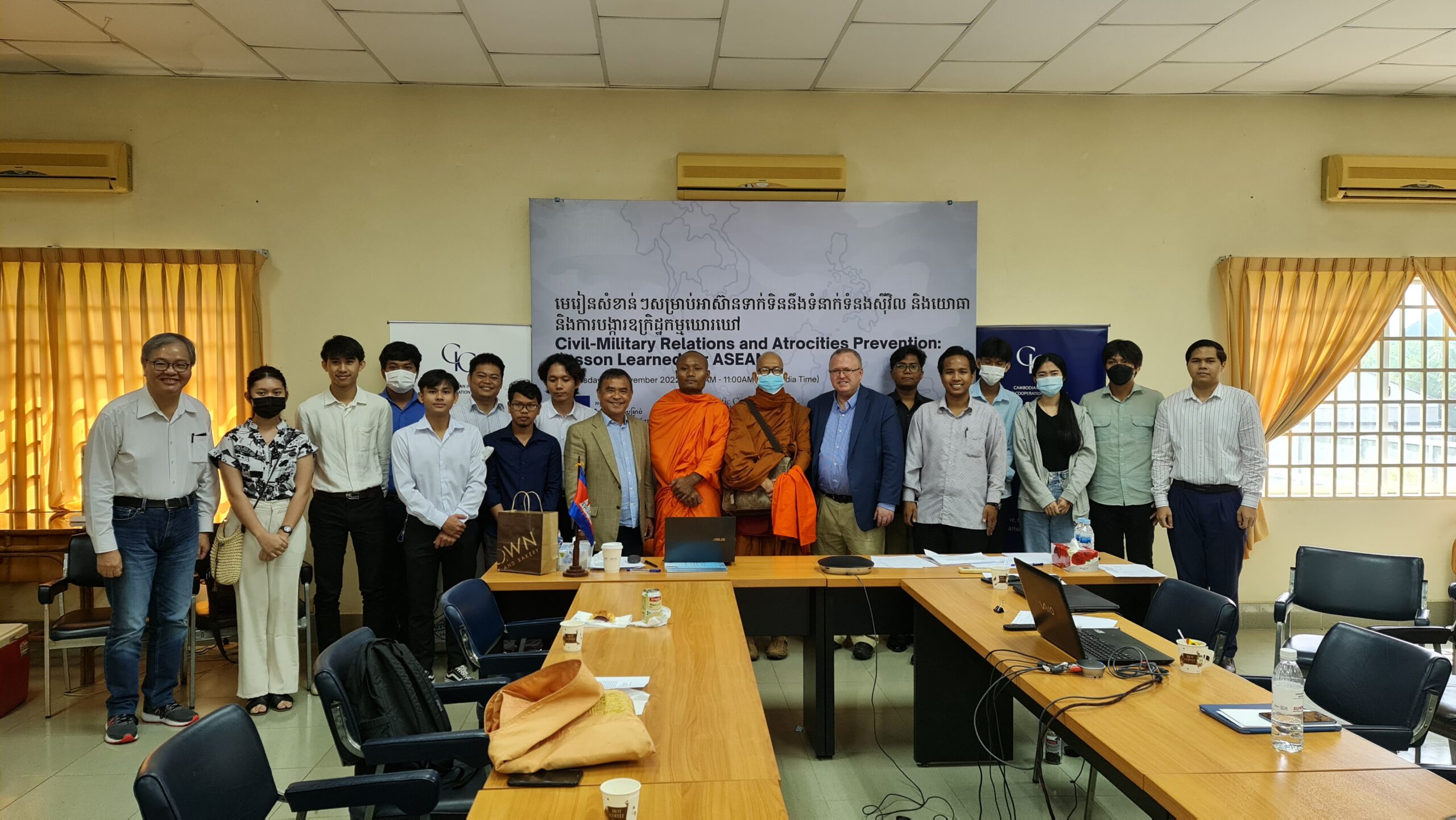On Wednesday, 23 November 2022, from 9:00 AM – 11:00 AM at CICP Office, the Cambodian Institute for Cooperation and Peace, with the supported by Asia Pacific Center for the Responsibility to Protect (APR2P), organized a half-day workshop featuring Dr. Paul Chambers, a regional expert knowledgeable about civil-military relations (CMR) in ASEAN, who has been invited to share his perspectives on key lessons that ASEAN can learn from current civil-military relations and atrocities prevention efforts in Southeast Asia by reflecting on on-going ASEAN CMR dilemmas and atrocities, especially the Myanmar crisis resulting from the Tatmadaw (Myanmar military) coup of 1 February 2021. The workshop will also discuss the implications of the region’s civil-military relations, its lukewarm commitment to R2P (Responsibility to Protect) as well as the role of the military in 21st-century state-building efforts. The event will focus on the relevance of security sector reform (SSR) in countries in crises such as those in Myanmar and will examine if any positive experiences in place in the region can be promoted in Myanmar and other ASEAN countries. This is an important first step to build more local awareness and constituencies to support SSR and R2P in Myanmar, Southeast Asia and beyond.
The workshop seeks to reaffirm ASEAN’s commitment to R2P and SSR. R2P itself is an international norm which strives to guarantee that the international community will never again fail to stop the four mass atrocity crimes of genocide, war crimes, crimes against humanity, and ethnic cleansing. R2P was unanimously adopted in 2005 at the United Nations World Summit (globalr2p.org 2022). SSR, on the other hand, is a policy-oriented approach which generally seeks to bolster the streamlining, demobilization and downsizing of security forces; improving their efficiency; enhancing professionalism; increasing transparency; reducing corruption; improving the justice sector; monitoring non-state security providers; diminishing human rights abuses; and enacting legislation toward these objectives among other goals. In many ways, SSR is thus a part of the human security agenda (OECD 2007: 11; Chambers 2014: 2). SSR promotes the strengthening of (elected) civilian control over the military based upon the conviction that the aforementioned objectives are more likely to be accountably implemented under a democracy.
